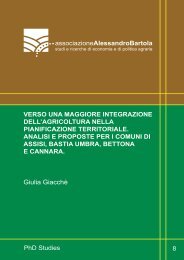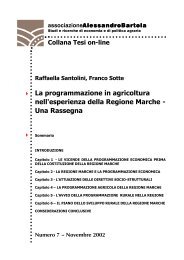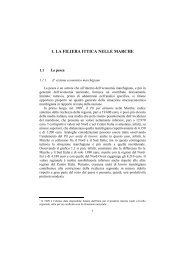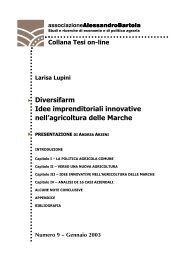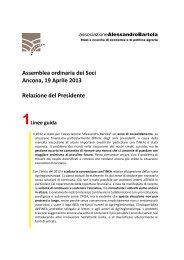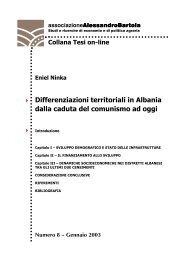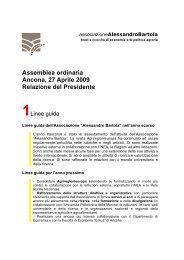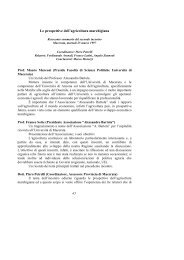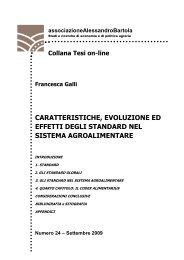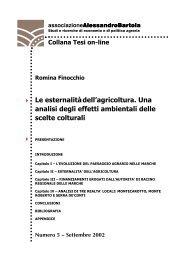TESTING INTERNATIONAL PRICE TRANSMISSION UNDER ...
TESTING INTERNATIONAL PRICE TRANSMISSION UNDER ...
TESTING INTERNATIONAL PRICE TRANSMISSION UNDER ...
You also want an ePaper? Increase the reach of your titles
YUMPU automatically turns print PDFs into web optimized ePapers that Google loves.
Concluding Remarks<br />
Indeed, the study of the outcomes of the implementation of the URAA<br />
provides insights about the effects of all liberalization reforms aimed at increasing<br />
market access.<br />
Moreover, analyzing the effects of reduction of the intervention prices is of a<br />
crucial importance within the “Health Check” debate of the CAP, since a<br />
substantial reduction of this mechanism is currently being proposed by the<br />
European Commission.<br />
However, a number of issues are left open for future research.<br />
These basically stem from some of the simplistic assumption that necessarily<br />
had to be made in the empirical applications proposed: the way in which unknown<br />
transport costs are modelled; the presence of market power; other possible<br />
exogenous drivers for the price dynamics; a more detailed study of the<br />
homogeneity issue. In addition to this, a deeper analysis of the relation between<br />
US and intervention prices, and especially of its evolution in time, can contribute<br />
to better understand the French and US price dynamics.<br />
Finally, it should be recalled that, in this work, the use of data which would<br />
allow to go back in time has been preferred although this, in turn, implied the<br />
impossibility of studying the latest years. In this respect, some additional<br />
considerations emerge considering the most recent market dynamics: the dramatic<br />
rise in energy prices (and in freight rates) could increase the complexity of the<br />
assumptions made on transaction costs; moreover, soaring food prices caused<br />
remarkable changes in the institutional settings of international trade.<br />
The effects of more recent policy and market developments should be the<br />
object of further research; considering the evolving international context goes then<br />
well beyond the use of more recent data, and probably represents the most<br />
interesting possibility of developing the framework presented.<br />
113



